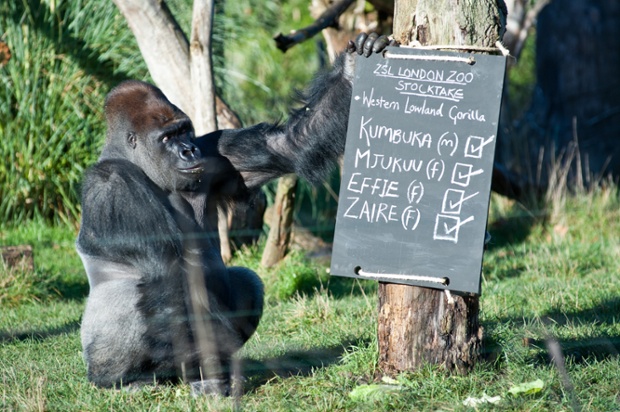Now the news continues.
From aardvarks to zebras, the residents of London Zoo are coming forth to be counted.
Dozens of zookeepers carries clipboards and even snacks to coax out the most reluctant creatures. They have set out to record every resident mammal, bird, fish, invertebrate, reptile and amphibian as part of the zoo's annual animal census.
The London Zoo is home to some 19,000 animals of more than 850 species, from 400-pound or 185-kilogram silverback gorillas to insects such as the tiny leaf-cutter ant.
Ants and other extremely tiny creatures are counted in colonies, but all others are recorded individually.
Some residents are easy to spot — including Kumbuka, one of the zoo's four hulking gorillas, who emerged to inspect a keeper's blackboard.

Others require patience and cunning. Zoological Manager Mark Habben says his staff have to be quick to record all the fish darting among rocks and coral.
The manager says the social animals such as squirrel monkeys and meerkats can be quite difficult, because they are moving around so quickly and you don't want to count the same animal twice. There is often food involved, which encourages them to stay still.
The annual stock-taking is required under the license terms for all British zoos. The data is entered into an international computer database of animal collections and used to plan zoo management and breeding programs for endangered species.
The full count is expected to take up to 10 days. New arrivals at the zoo this year include a baby Malaysian tapir, a young okapi, two flamingo chicks and the first spiny-headed lizards born in Britain.
The manager says the zoo's records are thorough, so the head count shouldn't turn up any previously unknown residents. He says there are very rarely any surprises.












